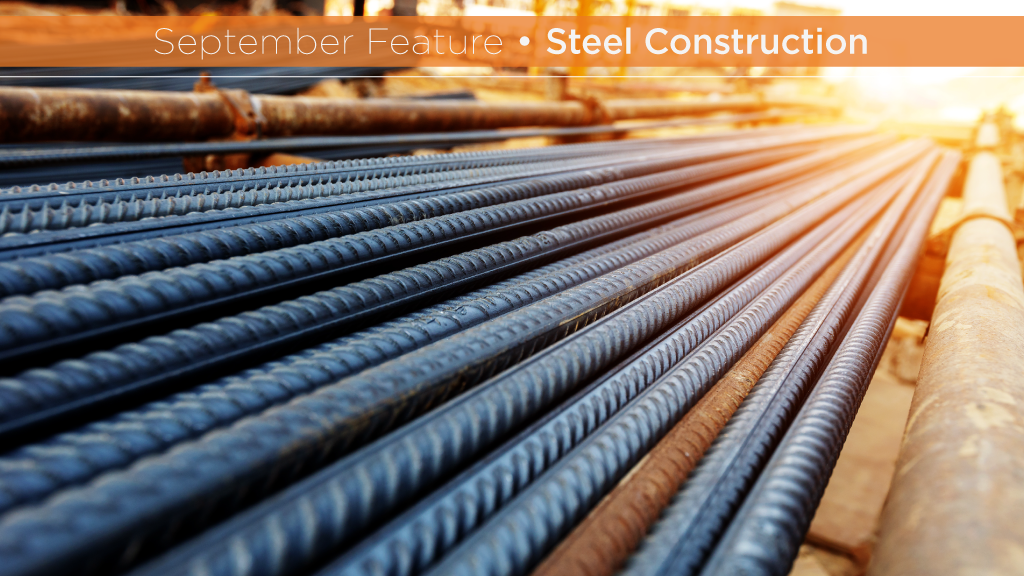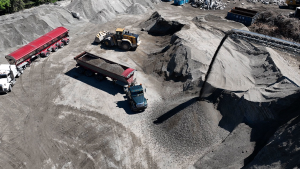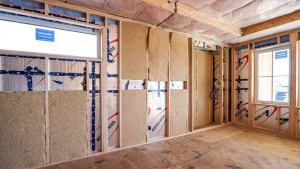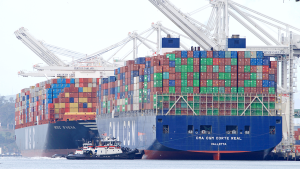Western Canada’s steel prices are expected remain high over the next 2023-2024 period, despite some softening of world prices.
Red hot prices soared the world per ton price to US$1,000 last year, but Fitch Solutions, which tracks world prices, revised its 2023 forecast of US$850 per ton to US$750 per ton mainly because of China’s steel glut. However, Western Canada remains locked out of lower cost steel by Canada’s protectionist tariffs and any slight price reductions are expected to be eroded through inflationary pressures and escalating costs of placing steel on jobsites.
“If you look at any of the markets, the prices have not come down as much as we wanted,” said Abbotsford’s sales and operations manager Don Shahan of Harris Rebar.
It’s a sentiment shared by others.
“Prices are coming down slowly but a lot of the lower cost of the actual material is eaten by extra labour costs to install the steel,” said managing director Anoop Khosla of Midvalley Rebar Ltd.
He estimates construction steel prices, depending upon the product, have come down 10 to 15 per cent. Labour costs include increased wages plus there exists a growing labour shortage both in the field and locally in fabricating plants.
Western Canada still remains caught in a hard place between prohibitive tariffs on Asian imports, such as from China (which in 2022 produced 1.01 billion tones or half the world supply), and protectionist tariffs on imported U.S. steel.
Kholsa said the U.S. price of steel has come down approximately 10 per cent as a result of the Asian steel glut and new U.S. mid-west capacity coming on stream. But, the dollar exchange rate is still making U.S. steel expensive.
Shipping from Eastern Canada steel mills benefitting from Canada’s protectionist policies adds $175 to $200 to the per ton cost, Kholsa said. Alberta has Western Canada’s only steel mill, but it only produces 25 per cent of what is needed.
Currently, approximately 60 per cent of Western Canadian imported steel is coming from three major sources side-stepping tariffs: Indonesia, Thailand and some from the United Arab Emirates. Peru is also supplying a small percentage.
“If there were any tariffs on these counties, it would be a real problem,” Kholsa said.
Fasteel president Dave Boyce also agrees some slippage in pricing has occurred this year in the 10 to 15 per cent range for construction steel. But some products remain volatile moving up and down, such as steel tubing for columns while steel stud prices have remained firm.
“There is definitely a supply crunch,” he said, adding COVID hit the supply chain, followed by the Ukraine war with Russia, which supplied 71.5 million tones to world markets and is now under sanctions.
Boyce said labour and transport costs remain an issue and although the company is mainly a supplier, it is aware of customers constantly looking for skilled workers and the higher fuel prices of delivering steel components to sites.
“Wages have increased significantly,” he said looking at his own operation over a four-year period.
The Construction Labour Relations Association (CLRA) has just concluded a new four-year contract with B.C. construction industry members that will see an average wage increase of 19 per cent over three years with the option of a fourth-year contract.
The CLRA was established to provide labour stability to B.C.’s unionized sector.
President Ken McCormack said contract runs from May 2023 to 2026 and is across the province for member unions, including the Local 29 which handles most of the unionized steel rebar and related work.
Despite the wage increases, B.C. is not seeing a large influx of new workers to construction, said McCormack, with some contractors not bidding on contracts because they can’t find workers.
“It is not expected to get better soon,” he said. “The ironworkers are doing better than some other trades.”
The Ironworkers Local 97 offers a two-week rebar bootcamp; the program includes the basics of rebar work plus safety training.
The union has an open door to those who want to try working in rebar.
“We have them come off the street and try it for a few hours. They can see if they actually like the work,” said KC Newton, administrator for the program.
The work is physically demanding and those placing rebar work in all kinds of climates. The program, which is currently running on a monthly basis, can only take 12 individuals with the current session having 30 applicants.
New entrants can start at $30 an hour (under the new contract), said Newton.
“For those who don’t have an employer, we will send them out to one of our companies that are looking for workers,” she said.









Recent Comments